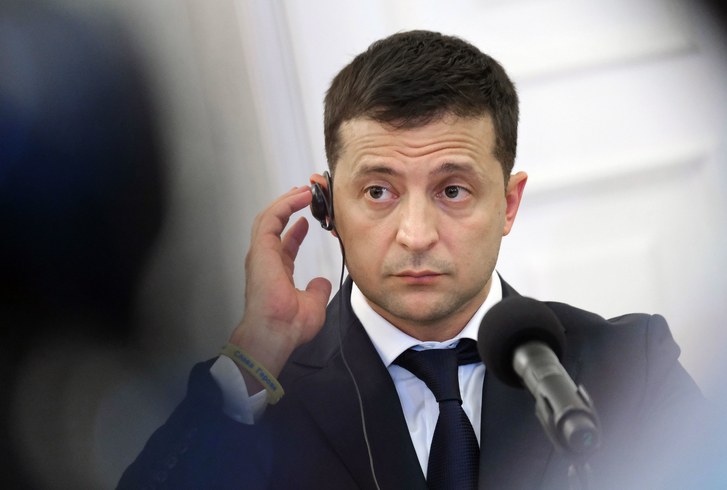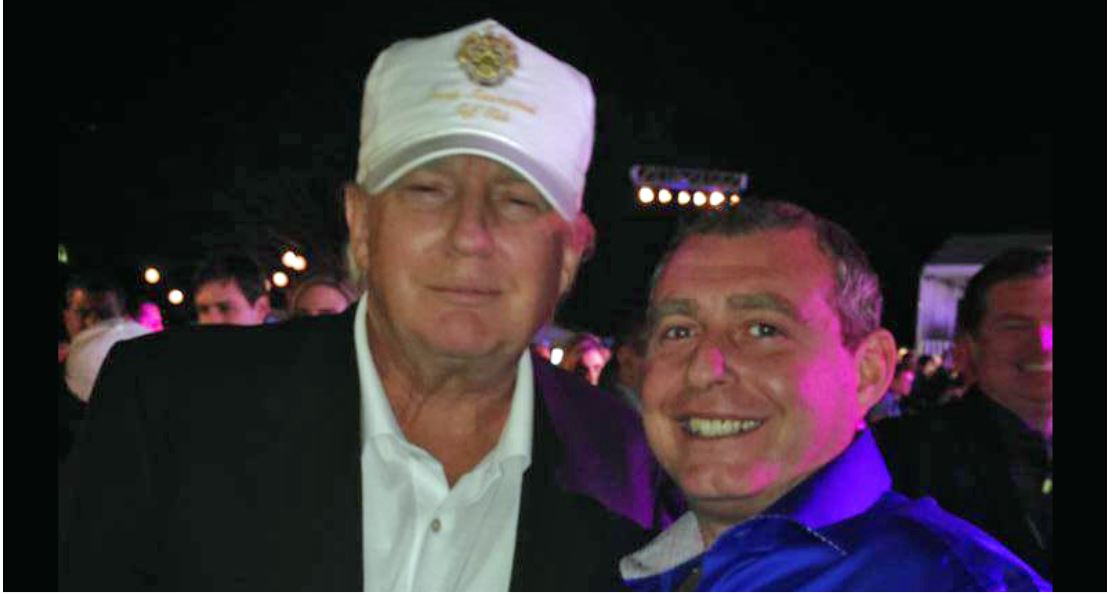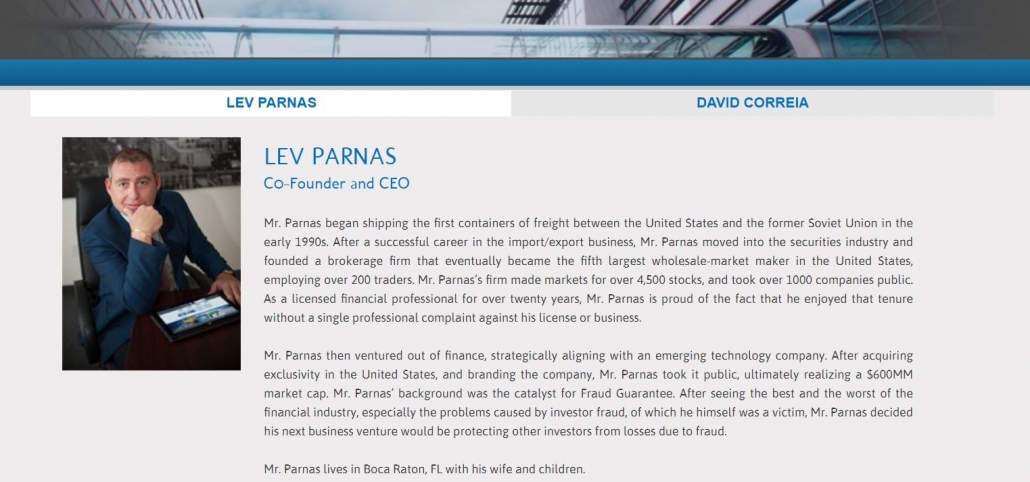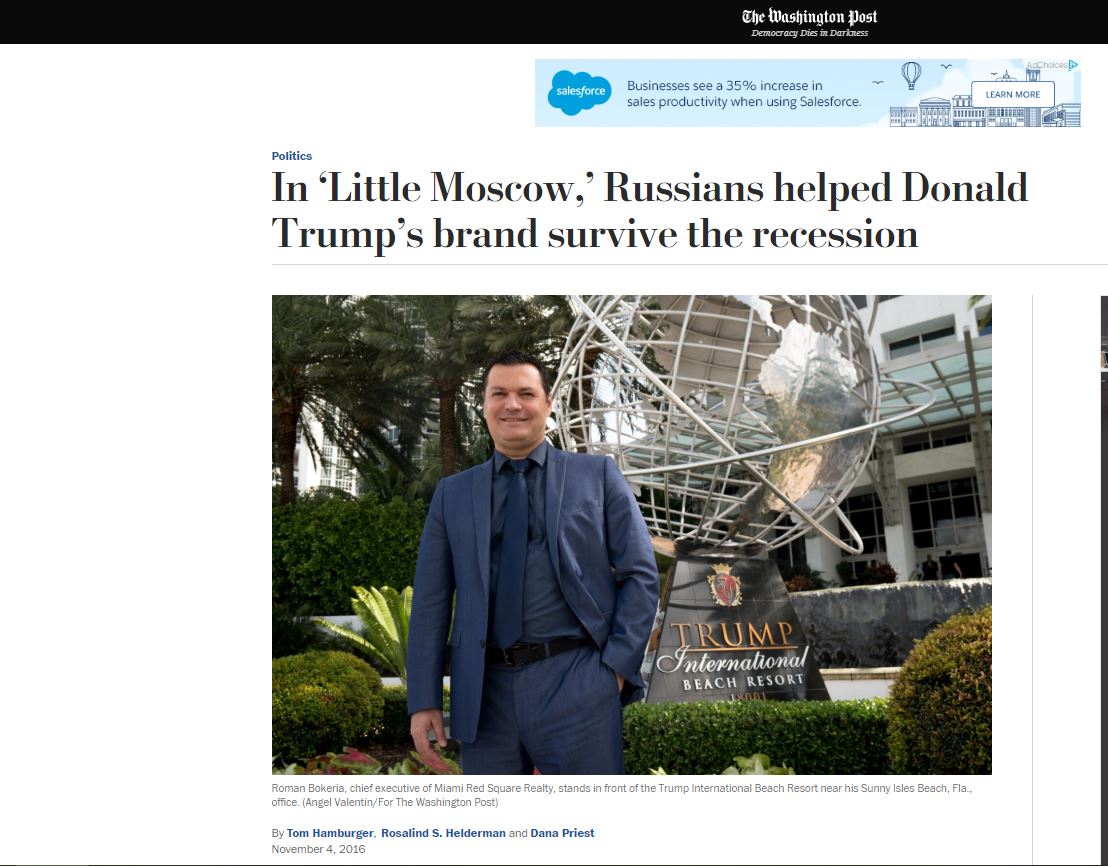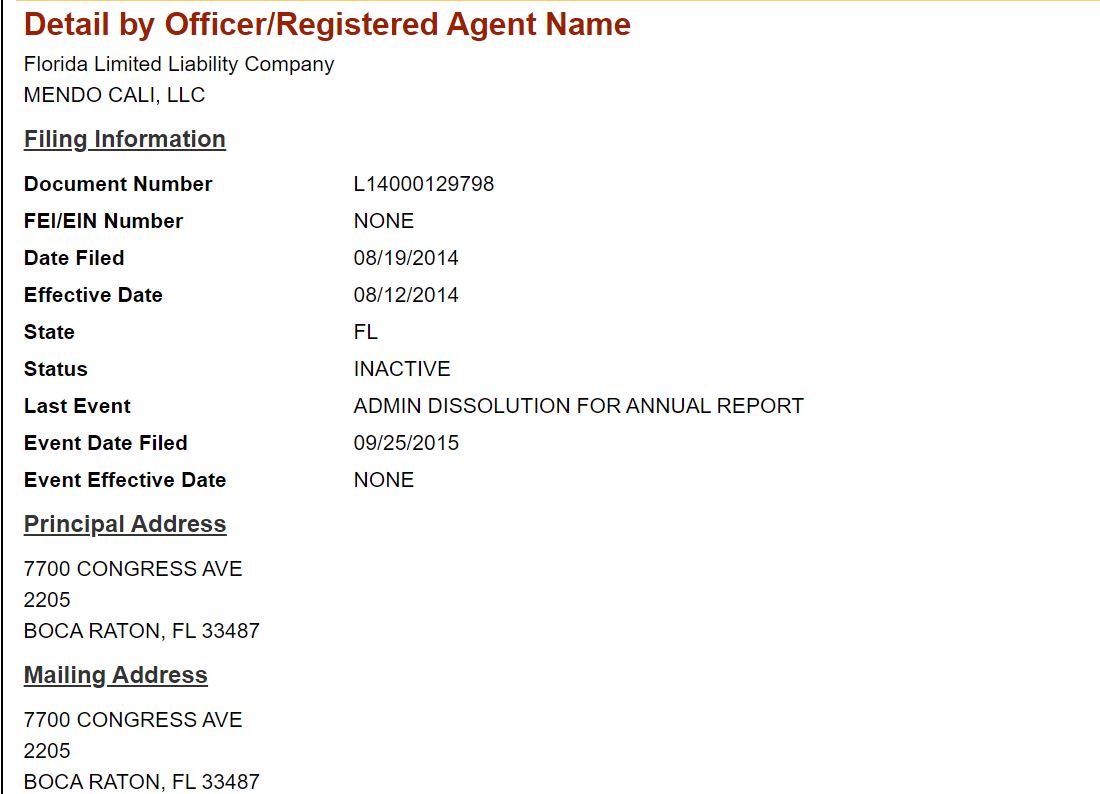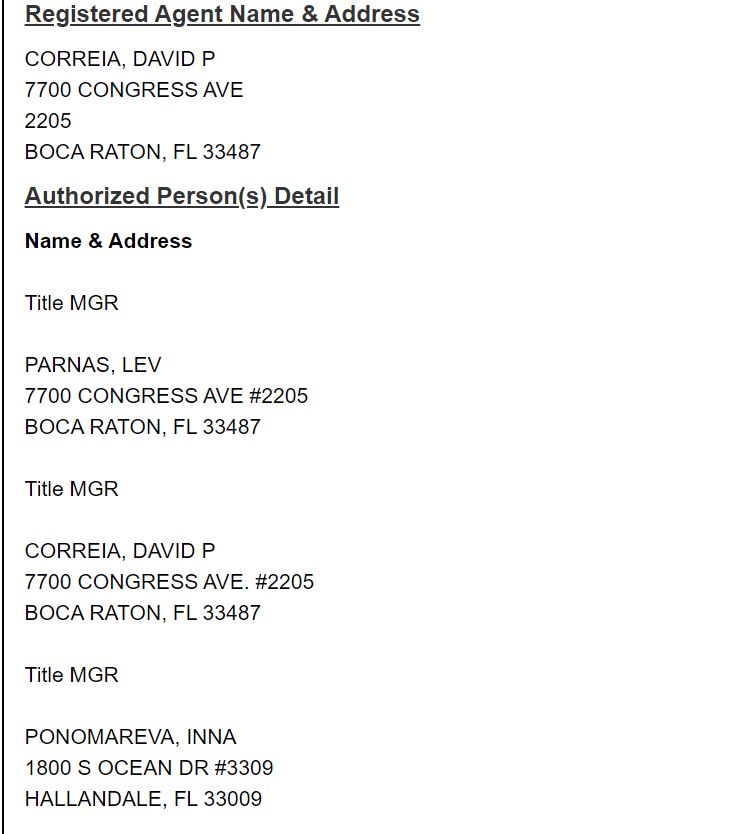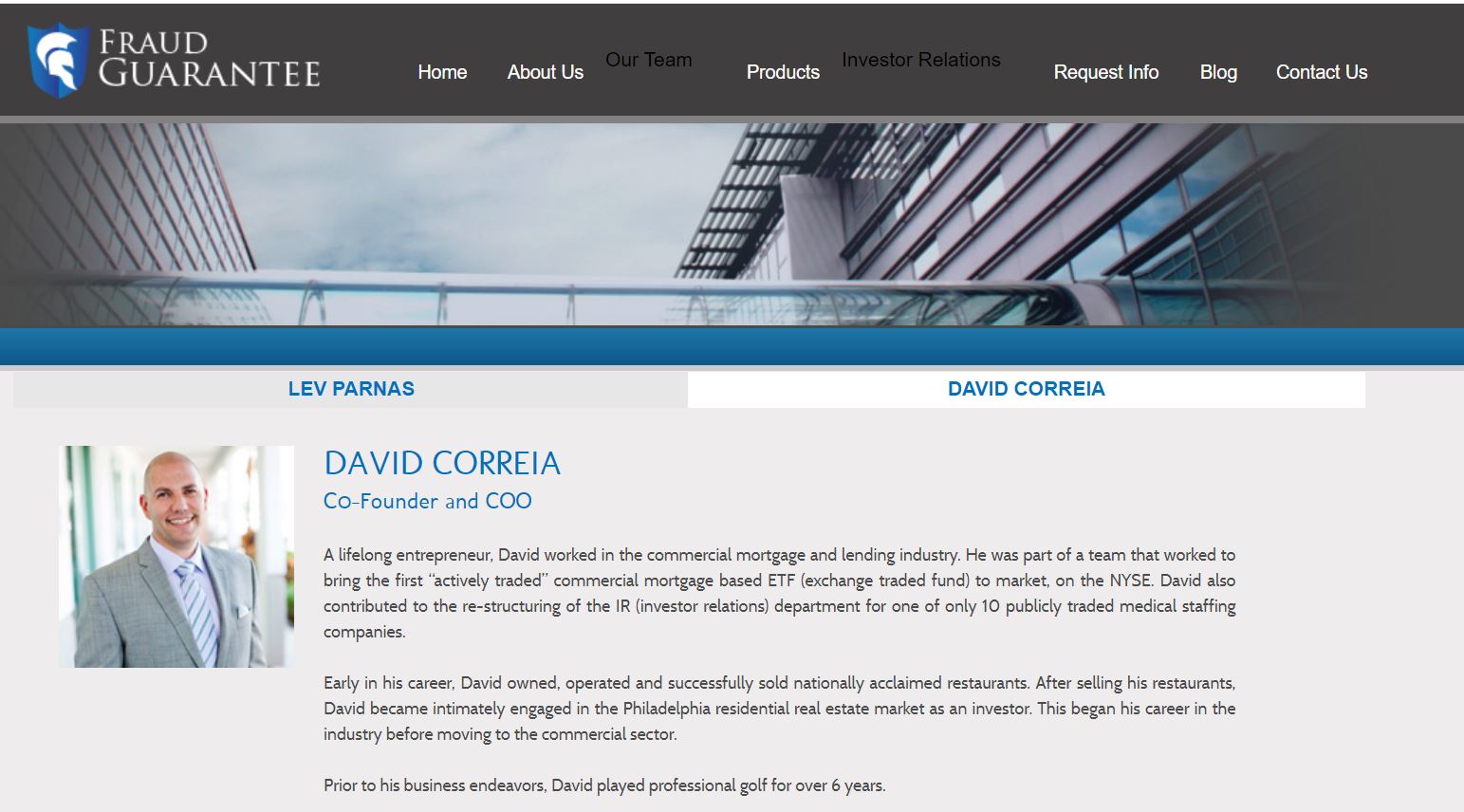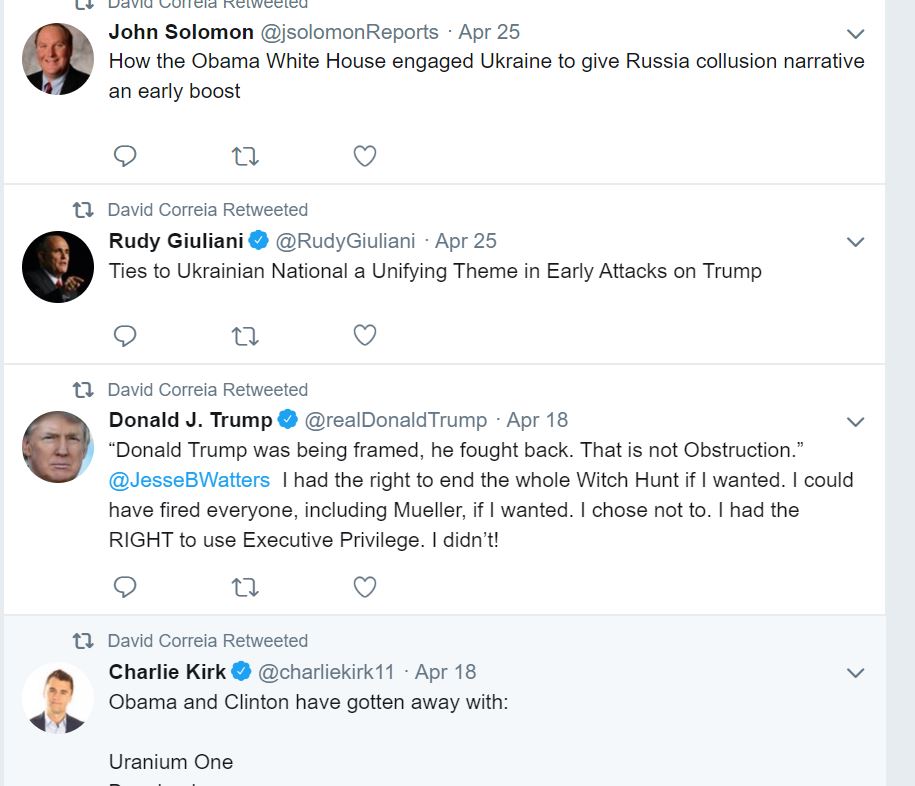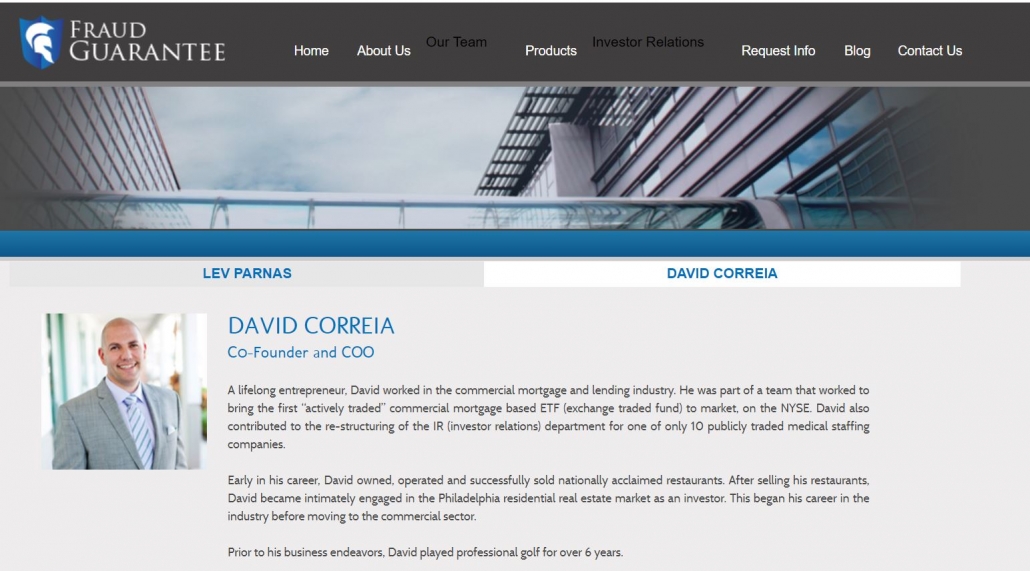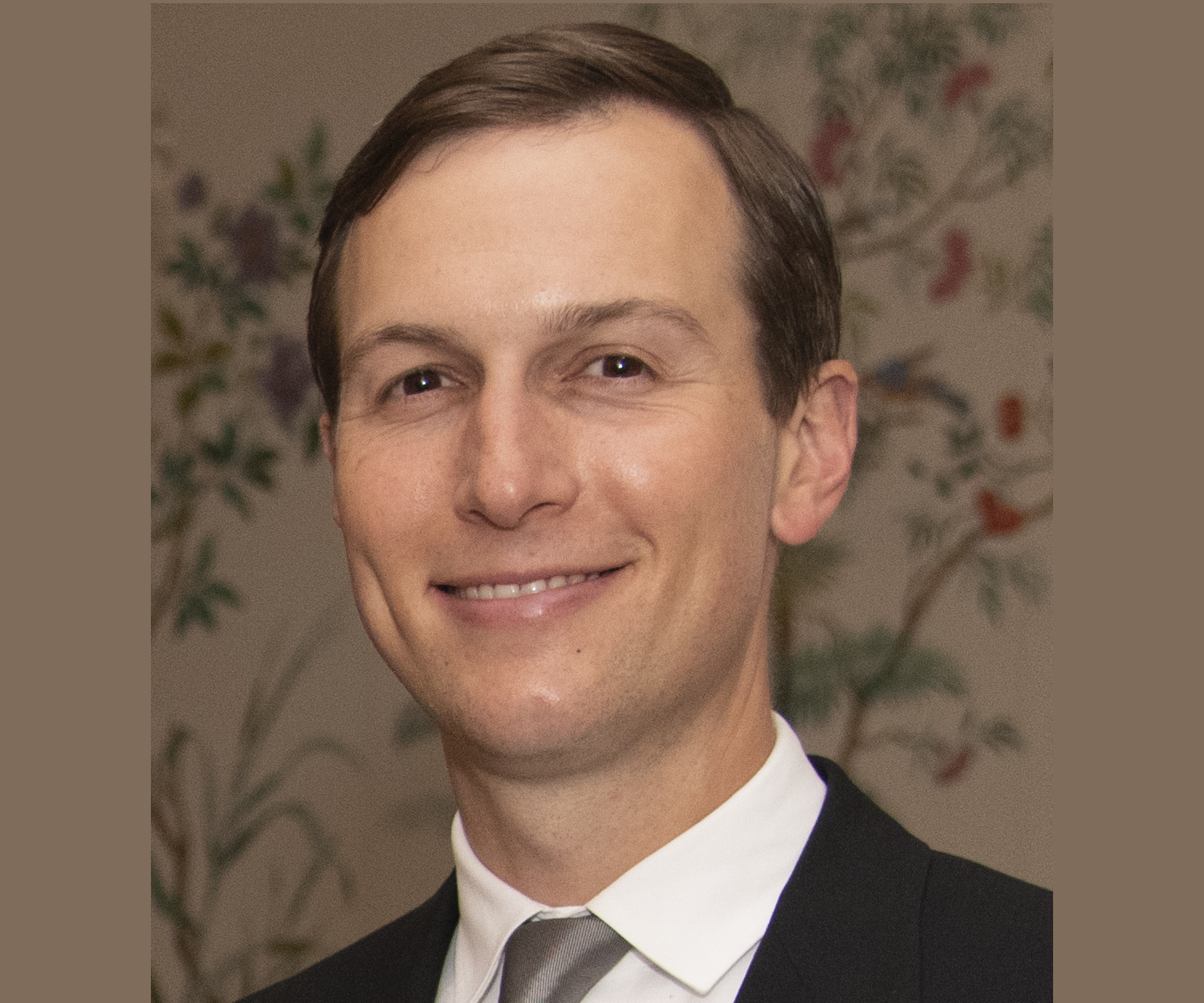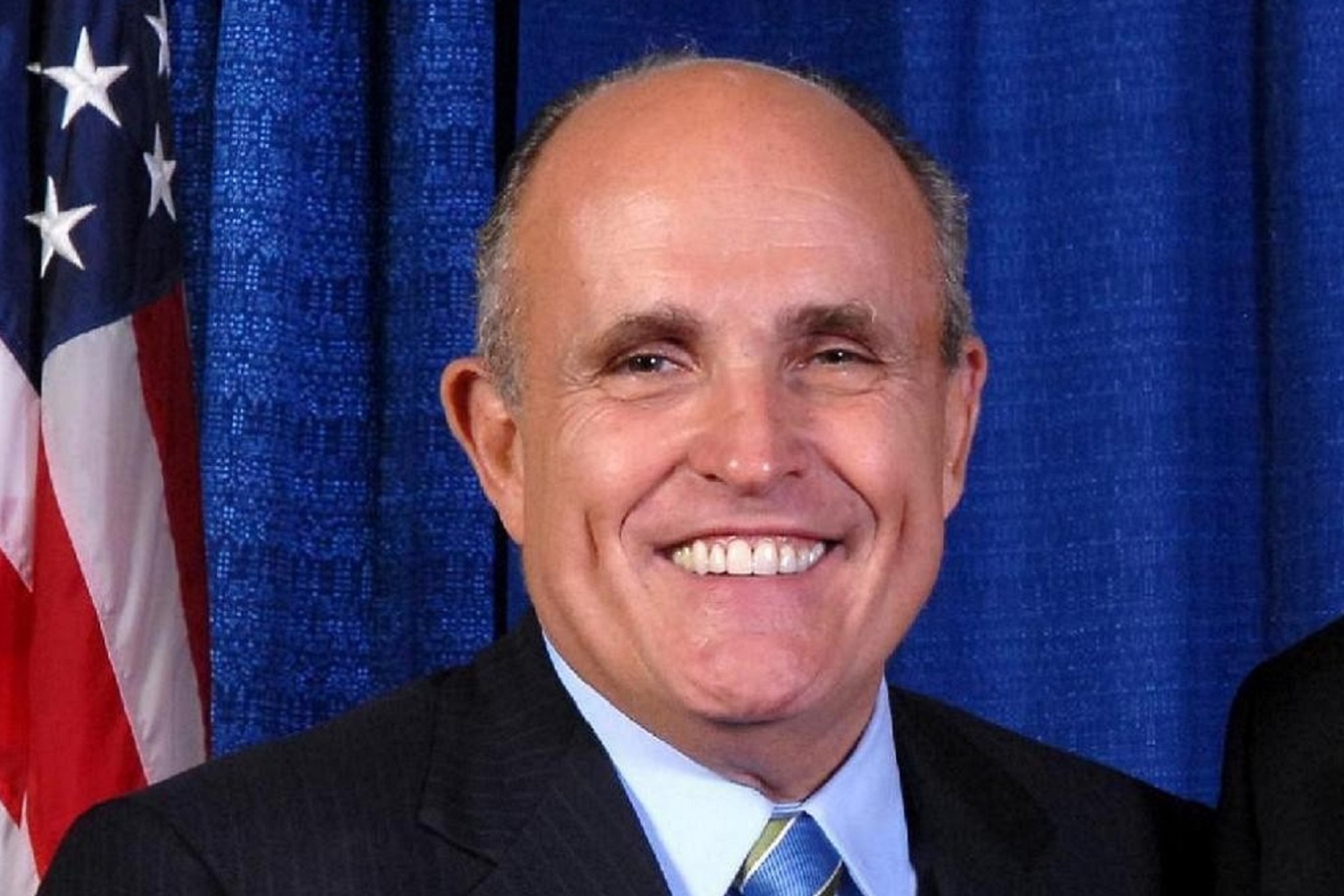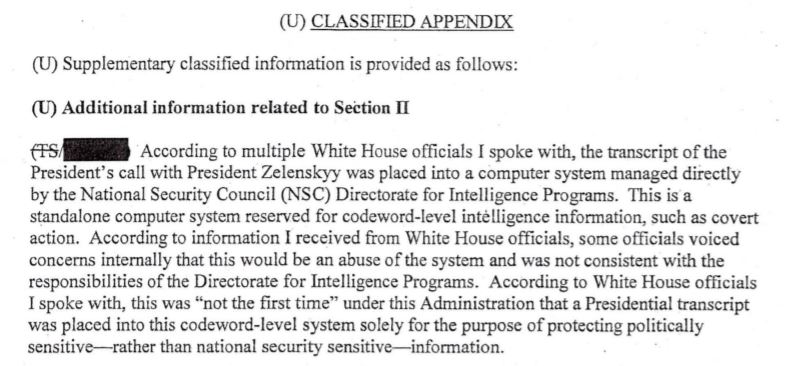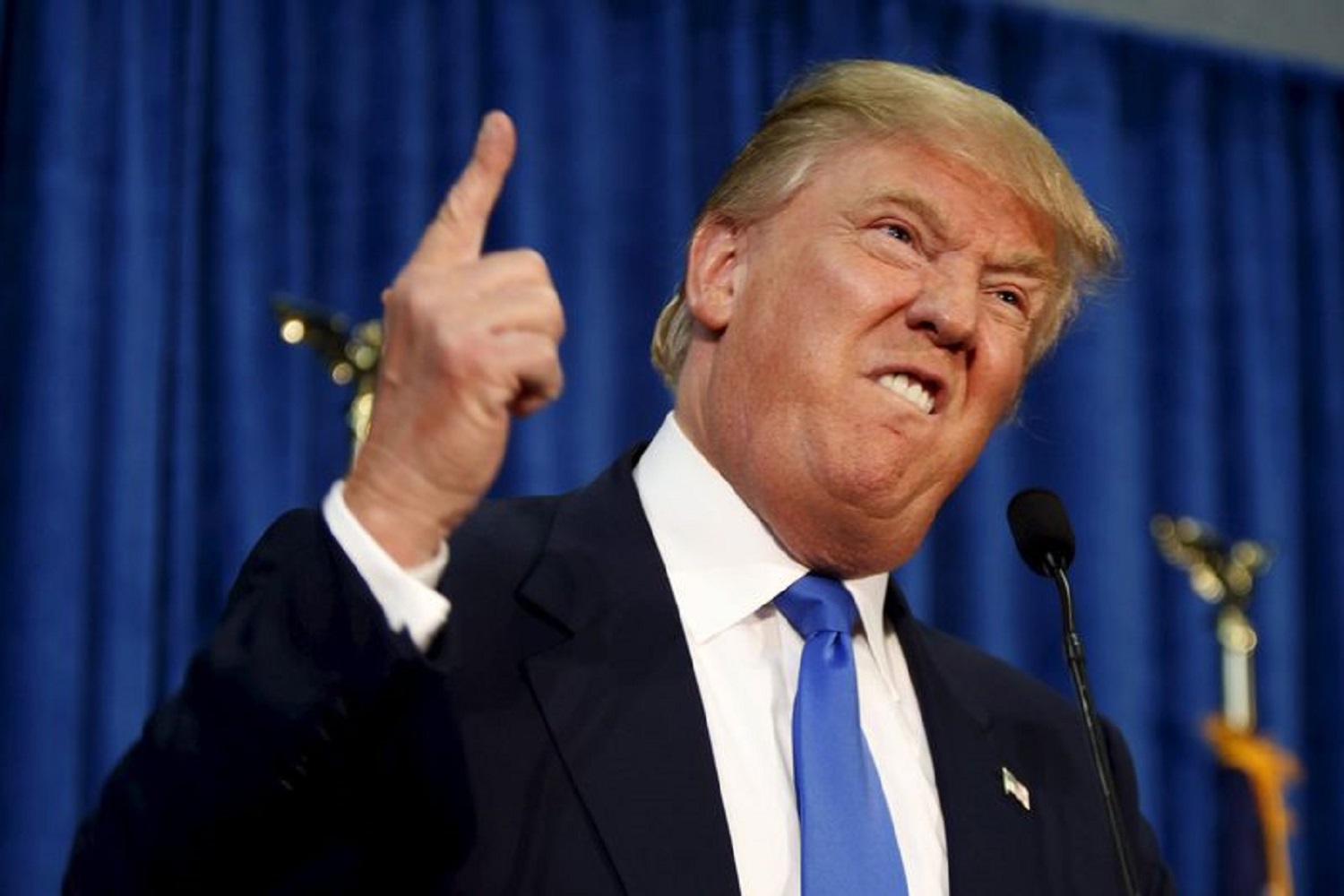Trump Team’s Extortion Demands To Ukraine Started Before The April 21 Call To Zelensky
Jim here.
As we prepare for the release of the “transcript” of Donald Trump’s first phone call to Volodymyr Zelensky, it is important to put the call into perspective with events surrounding it in the overall timeline of the Ukraine events at the center of the impeachment inquiry.
Pressure on Poroshenko Administration: January-February 2019
First, it is extremely important to note that Rudy Giuliani, Lev Parnas and Igor Fruman began their campaign to force Ukraine to re-open their investigation into Burisma and to expand it into an investigation of Joe and Hunter Biden, along with an “investigation” of Ukraine meddling in the 2016 US election, before Zelensky was elected. On Friday, the Washington Post filled us in on more details of that effort:
Two associates of Rudolph W. Giuliani pressed the then-president of Ukraine in February to announce investigations into former vice president Joe Biden’s son and purported Ukrainian interference in the 2016 election in exchange for a state visit, and a lawyer for one of the associates said Friday that they were doing so because Giuliani — acting on President Trump’s behalf — asked them to.
The Giuliani associates, Lev Parnas and Igor Fruman, met with then-Ukrainian President Petro Poroshenko in Kyiv, said Edward B. MacMahon Jr., a lawyer for Parnas. He said they were working on behalf of Giuliani, Trump’s personal lawyer, who was operating on orders from Trump.
“There isn’t anything that Parnas did in the Ukraine relative to the Bidens or the 2016 election that he wasn’t asked to do by Giuliani, who was acting on the direction of the president,” MacMahon said.
The article goes on to note that Ukrainian prosecutor Yuriy Lutsenko was also at this meeting, and that there had even been a meeting of Giuliani, Parnas and Fruman with Lutsenko in January.
As a result of this pressure, Lutsenko announced in March that he would investigate the Bidens. This opened the door for the infamous Ken Vogel hatchet job on the Bidens, published in the New York Times on May 1. Buried deep into the article, Vogel did at least grudgingly admit the previous investigation by Ukraine found nothing and that re-opening the investigation was in response to “pressure”:
The decision to reopen the investigation into Burisma was made in March by the current Ukrainian prosecutor general, who had cleared Hunter Biden’s employer more than two years ago. The announcement came in the midst of Ukraine’s contentious presidential election, and was seen in some quarters as an effort by the prosecutor general, Yuriy Lutsenko, to curry favor from the Trump administration for his boss and ally, the incumbent president, Petro O. Poroshenko.
We now know, as described above, that the pressure was applied primarily through Giuliani, Parnas and Fruman rather that through official channels. Returning to the Post article, here is how those efforts worked out:
At the time of the February meeting, Poroshenko was seeking reelection and wanting an official visit to Washington. He ultimately lost and never announced the investigations that Parnas and Fruman asked about, nor did he get the Washington visit he wanted.
The February meeting was also attended by Ukrainian general prosecutor Yuriy Lutsenko, MacMahon said. Lutsenko said in March he was investigating the Bidens, only to reverse course months later.
So, although Lutsenko announced an investigation, Poroshenko never did. Clearly, to the Trump team, the announcement had to come from the top in order to win the prize of the state visit that, at least in the opinion of the Trump team, would have tipped the election to Poroshenko. However, the Lutsenko announcement apparently was sufficient for Vogel and the Times.
Zelensky Elected April 21, 2019
The election in Ukraine took place on April 21 (although there was a preliminary round with no clear winner on March 31), with Zelensky winning in a landslide, 74% to 24% for Poroshenko. Trump’s call to Zelensky took place on April 21, shortly after Zelensky was declared the winner. Kurt Volker noted the call:
President Trump called to congratulate Volodymyr Zelenskyy (@zeteam_official) for his electoral victory and the Ukrainian people for a peaceful & democratic election. We will continue to support 🇺🇦’s efforts to restore its territorial integrity and counter 🇷🇺 aggression. https://t.co/ShBOWU1rga
— Kurt Volker (@SpecRepUkraine) April 22, 2019
So, on the surface, one would expect a transcript of the call only to reflect congratulations on being elected. Volker didn’t specifically state anything else was covered in the call, but did note the US supports Ukraine’s territorial integrity and “counter [Russian] aggression”, sentiments Trump certainly would not have put into the call or Volker’s statement about it.
Of course, since it’s Donald Trump we’re talking about here, all bets are off on what will be in whatever Trump releases, if he does release something. Recall that Trump has called for Republicans to release their own “transcripts” of committee depositions in a very thinly veiled request for doctored transcripts:
….should give their own transcripts of the interviews to contrast with Schiff’s manipulated propaganda. House Republicans must have nothing to do with Shifty’s rendition of those interviews. He is a proven liar, leaker & freak who is really the one who should be impeached!
— Donald J. Trump (@realDonaldTrump) November 4, 2019
Since Trump often operates via projection, we can’t help wondering whether he plans to do some editing on this “transcript” if it is released.
Pressure on Zelensky Administration Begins in May 2019, Before Inauguration
We must also keep in mind that the pressure on Zelensky’s Administration to investigate the Bidens began well before the July 25 phone call and that the first enticement offered in this extortion was Mike Pence attending the inauguration. From the New York Times:
Not long before the Ukrainian president was inaugurated in May, an associate of Rudolph W. Giuliani’s journeyed to Kiev to deliver a warning to the country’s new leadership, a lawyer for the associate said.
The associate, Lev Parnas, told a representative of the incoming government that it had to announce an investigation into Mr. Trump’s political rival, Joseph R. Biden Jr., and his son, or else Vice President Mike Pence would not attend the swearing-in of the new president, and the United States would freeze aid, the lawyer said.
/snip/
The meeting in Kiev in May occurred after Mr. Giuliani, with Mr. Parnas’s help, had planned a trip there to urge Mr. Zelensky to pursue the investigations. Mr. Giuliani canceled his trip at the last minute, claiming he was being “set up.”
Only three people were present at the meeting: Mr. Parnas, Mr. Fruman and Serhiy Shefir, a member of the inner circle of Mr. Zelensky, then the Ukrainian president-elect. The sit-down took place at an outdoor cafe in the days before Mr. Zelensky’s May 20 inauguration, according to a person familiar with the events. The men sipped coffee and spoke in Russian, which is widely spoken in Ukraine, the person said.
Mr. Parnas’s lawyer, Joseph A. Bondy, said the message to the Ukrainians was given at the direction of Mr. Giuliani, whom Mr. Parnas believed was acting under Mr. Trump’s instruction. Mr. Giuliani said he “never authorized such a conversation.”
Note Rudy’s non-denial: he says he never authorized such a conversation, but doesn’t dispute that it took place. Also note that Zelensky did not announce an investigation and Pence did not attend the inauguration.
Although it isn’t mentioned in this article, Rudy’s sudden decision not to attend the May meeting most likely was because he suddenly feared Igor Kolomoisky. From Buzzfeed:
The 56-year-old billionaire was not just a major supporter of Zelensky’s. He owned the television channel that had broadcast the comedy shows in which the newcomer had once played the part of the president of Ukraine, which had made him a household name.
Parnas and Fruman jetted to Israel in late April to meet Kolomoisky, who was living in self-exile after the previous administration took over a bank he founded amid accusations of fraudulent loans and money laundering. (Kolomoisky has vehemently denied the allegations.)
The meeting went badly.
In an interview, Kolomoisky said he was led to believe Parnas and Fruman wanted to talk about their new export business. Instead, he said, they pushed to meet with Zelensky. “I told them I am not going to be a middleman in anybody’s meetings with Zelensky,” he said to reporters for BuzzFeed News and the Organized Crime and Corruption Reporting Project. “I am not going to organize any meetings. Not for them, not for anybody else. They tried to say something like, ‘Hey, we are serious people here. Giuliani. Trump.’ They started throwing names at me.”
Kolomoisky called Parnas and Fruman “fraudsters” in an interview shortly after the meeting. Soon after, a lawyer for the two men filed a claim for damages and told police in Kiev that the oligarch had threatened their lives.
“It was a threat that we took seriously,” said Parnas.
Giuliani jumped into the dispute, denouncing Kolomoisky in tweets as a “notorious oligarch” who “must be held accountable for threats.”
So Rudy stayed behind on the May trip, sending Parnas and Fruman on their own.
Bottom Line
Even if a “transcript” from the April 21 call from Trump to Zelensky is released and contains no extortion demand from Trump for Zelensky to investigate the Bidens, such a demand was indeed delivered to a Zelensky associate less that a month later by Parnas and Fruman. The threat was then carried out when Pence did not attend Zelensky’s inauguration since no investigation was announced.

